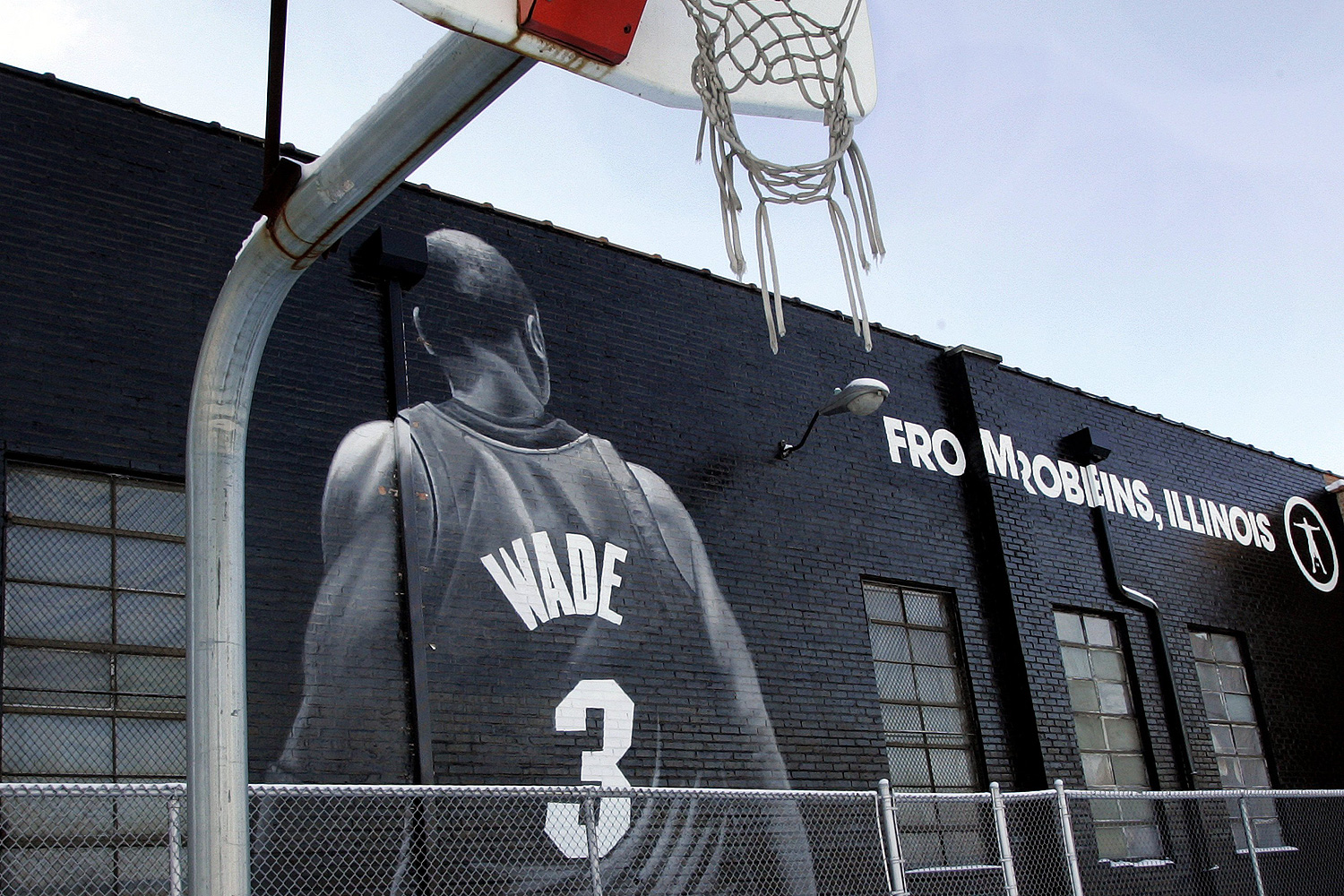Last week, the Bulls traded Derrick Rose and let Joakim Noah walk: two beloved, team-defining veterans who were nonetheless struggling with injury problems under big contracts. In the Rose trade, they got back two respectable vets and an intriguing lottery ticket who might have been poorly handled by the Knicks. And they looked like a team starting a normal soft rebuild.
Hoo boy.
Then they added Rajon Rondo, a hugely talented and extremely intelligent (but mercurial) point guard with impressive (but possibly empty) stats. An unexpected choice to replace Rose, certainly. Then the even bigger news: To fill, in some way, Rose's role for the fan base, Dwyane Wade, a hometown (or at least home-metropolitan-statistical area) star and former MVP … who also happens to play the same position as Jimmy Butler, with similar skills, at a similar level.
It's all pretty weird. They jettisoned highly paid, high-profile, aging veterans who were increasingly poor fits in a struggling system, for… highly paid, high-profile, aging veterans who seem like odd fits.
But maybe there's some upside?
| Player | PER | EWA | VA | EF% | TS% |
|---|---|---|---|---|---|
| Jimmy Butler | 21.33 | 13.33 | 399.9 | 48.5 | 56.2 |
| Dwyane Wade | 20.42 | 11.1 | 334.3 | 45.9 | 51.7 |
| Rajon Rondo | 16.92 | 7.5 | 224.1 | 48.9 | 50.5 |
| Derrick Rose | 13.52 | 2.6 | 79 | 44.8 | 47.9 |
| Joakim Noah (2014-2015) | 15.35 | 4.8 | 145.2 | 44.5 | 48.2 |
SOURCE: ESPN.com, NBA.com
The numbers suggest that the Bulls, at the very least, added two stars who have the talent to play at a high level, and at a higher level than the stars they lost (although Noah is obviously an apples-to-oranges comparison).
Huge caveats apply, of course. NBA players are uniquely dependent on each other and their teams. Rose might be a better player on a new team with a better-defined role. Butler might be worse if the addition of Wade means even more role conflict than the team had with Rose. Rondo has a rep for inefficient stat-padding. Butler, Wade, and Rondo could all be worse if this non-intuitive assemblage of talent, substantial though it is, simply doesn't work.
Whether Wade and Rondo can, with Butler, be better than the sum of their parts, is the question. (Even just being the sum of their parts might be a minor victory.) There's a lot of reason to be skeptical about whether their skills and personalities can be in sync, and what role coach Fred Hoiberg can play in doing that.
But if it doesn't work, The Athletic's Stephen Noh argues that maybe it doesn't exactly have to. The Bulls were cut out of the most appealing free agents, but next year's class is deeper. Rondo is only guaranteed for one year, and Wade has a player option. "The Bulls opted to structure salary flexibility around 2017 because they believed there would be better free agents to choose from and the risk of overpaying for mediocre talent would be decreased," Noh writes.
It's not a foolproof scenario, for reasons he outlines in some detail. The flood of money with the increasing salary cap changed the free-agent market quickly; predicting what 29 other teams in one of sports's more complex financial systems will do in a period of instantaneous, massive inflation is difficult on its own, and player preferences are not strictly a matter of dollars.
If Noh is right, the Bulls have a gap year to get weird. The Ringer's Danny Chau lays out a scenario in which it's weird enough to work. SB Nation's Ricky O'Donnell suggests an even weirder scenario, less a moon shot than colonizing Mars, in which the Wade acquisition starts the foundation for a super-team starring you-know-who. Is it crazy? Yes. So is the team they put together for this year.
It's very easy for people who write for a living to appreciate a fantastic suspense story instead of a fantastic team. But the Bulls have chosen to embrace the weird in order to get through the next season, and their fans might have to get weird in order to stay sane.




